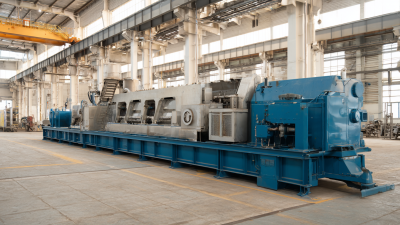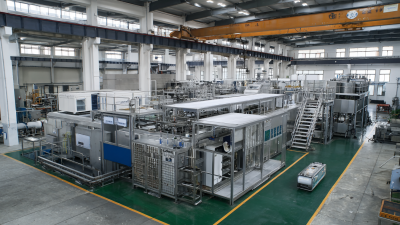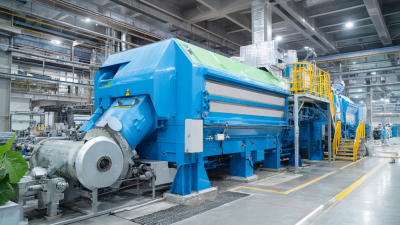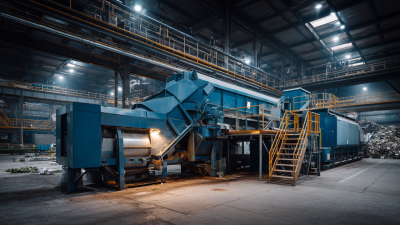In today's industrial landscape, the demand for efficient and sustainable manufacturing processes has reached unprecedented levels. The Continuous Screw Press has emerged as a pivotal technology in various sectors, including food processing, oil extraction, and wastewater treatment. According to a recent report by Market Research Future, the global market for Continuous Screw Press systems is projected to witness a compound annual growth rate of 6.2% from 2023 to 2030, underscoring its growing significance in optimizing operational efficiency and resource recovery.
Industry expert Dr. Sarah L. Thompson, a leading authority in mechanical engineering and process optimization, emphasizes the critical role of the Continuous Screw Press, stating, "The integration of Continuous Screw Press systems not only enhances extraction efficiency but also minimizes waste, aligning with the industry's shift toward sustainable practices." As businesses increasingly seek innovative solutions to improve their production capacity while reducing environmental impact, the Continuous Screw Press stands out as a reliable and effective tool that can adapt to various industrial applications.
With its multiple benefits, including higher yield, lower energy consumption, and reduced processing time, the Continuous Screw Press is revolutionizing traditional manufacturing processes. This article delves into the top seven advantages of implementing this technology, highlighting its potential to transform industrial applications and contribute to a more sustainable future.

Continuous screw presses are transforming industrial processing by enhancing production efficiency through a streamlined approach. According to a report by MarketsandMarkets, the continuous processing equipment market is projected to reach USD 3.2 billion by 2027, underlining the growing recognition of efficiency in manufacturing processes. Continuous screw presses facilitate uninterrupted operation, reducing downtime and significantly increasing throughput. This uninterrupted processing capability not only minimizes labor costs but also boosts productivity, allowing manufacturers to meet growing consumer demands without compromising quality.
Moreover, the ability to maintain consistent temperature and pressure in continuous screw pressing results in uniform product quality. A study from the Journal of Food Engineering highlighted that continuous processing can lead to a 25% increase in output compared to batch processing, particularly in food and biofuel sectors. By optimizing these operating conditions, industries can achieve better extraction rates and improved final product quality, reinforcing the competitive edge in the market. As industries aim for higher efficiency and sustainability, the adoption of continuous screw presses is becoming an integral part of modern production strategies.
| Benefit | Description | Impact on Production Efficiency |
|---|---|---|
| Increased Throughput | Continuous operation allows for higher production rates. | Significant reduction in production time. |
| Energy Efficiency | Optimized design reduces energy consumption. | Lower operational costs over time. |
| Improved Product Quality | Consistent processing leads to uniform product quality. | Reduced waste and rework. |
| Reduced Labor Costs | Automation decreases the need for manual labor. | Lower overhead and staffing flexibility. |
| Space Efficiency | Compact design maximizes factory floor space. | More space available for other operations. |
| Versatility | Can process a wide range of materials. | Flexibility to adapt to different production needs. |
| Lower Maintenance | Fewer moving parts result in less wear and tear. | Reduced downtime and maintenance costs. |
Continuous screw press technology plays a pivotal role in optimizing resource utilization across various industrial applications. Unlike traditional pressing methods, continuous screw presses operate by feeding materials steadily through a screw mechanism, allowing for a more efficient and streamlined processing of raw materials. This process reduces waste by maximizing the extraction of valuable components while minimizing excess material and energy consumption. As industries focus on sustainability, the ability to efficiently convert raw inputs into desired outputs creates a substantial competitive edge.
Moreover, continuous screw presses enhance operational efficiency by significantly reducing processing times. The continuous nature of this technology means that production runs can be maintained without interruption, maximizing throughput. This consistent operation not only leads to higher productivity but also translates into lower labor costs and reduced downtime. Additionally, the flexibility of continuous screw presses allows them to be adapted to various materials and product specifications, making them an invaluable asset for industries aiming to optimize their production processes while adhering to eco-friendly standards.
The use of continuous screw presses in industrial applications significantly enhances sustainability by effectively reducing waste during production processes. These machines are designed to extract maximum value from raw materials, enabling industries to minimize the by-products generated during processing. By optimizing the extraction and separation processes, continuous screw presses help in utilizing almost every part of the material, ensuring that valuable resources are not discarded unnecessarily.

Moreover, continuous screw presses play a crucial role in promoting a circular economy. Their efficiency leads to less reliance on virgin materials, as companies can recycle and repurpose waste into new products. This not only conserves resources but also reduces the environmental impact related to waste disposal. As industries increasingly focus on sustainable practices, integrating continuous screw presses into their operations contributes to a more eco-friendly approach, fostering a culture of responsible production that aligns with modern sustainability goals.
The use of a continuous screw press in industrial applications significantly enhances product quality by offering consistent processing methods. This equipment ensures that raw materials are processed uniformly, which minimizes variations in the final product. By maintaining a steady output and controlled temperatures, manufacturers can create products that meet strict quality standards. The predictable processing conditions provided by the continuous screw press lead to improved product integrity and batch-to-batch consistency.
Tip: Regular maintenance of the screw press is essential for sustaining high product quality. Ensure that all components are clean and well-lubricated to avoid any reliability issues that could affect processing performance.
Additionally, the continuous nature of the screw press allows for real-time monitoring and adjustment during production. This flexibility enables operators to swiftly address any variances, ensuring that the quality remains intact throughout the processing phase. Adopting this technology can streamline operations and reduce waste, ultimately leading to higher efficiency and better overall product quality.
Tip: Implementing a monitoring system can provide valuable insights into processing parameters, enhancing control over the final product quality. Keeping detailed records of these parameters can aid in troubleshooting and optimizing production processes.
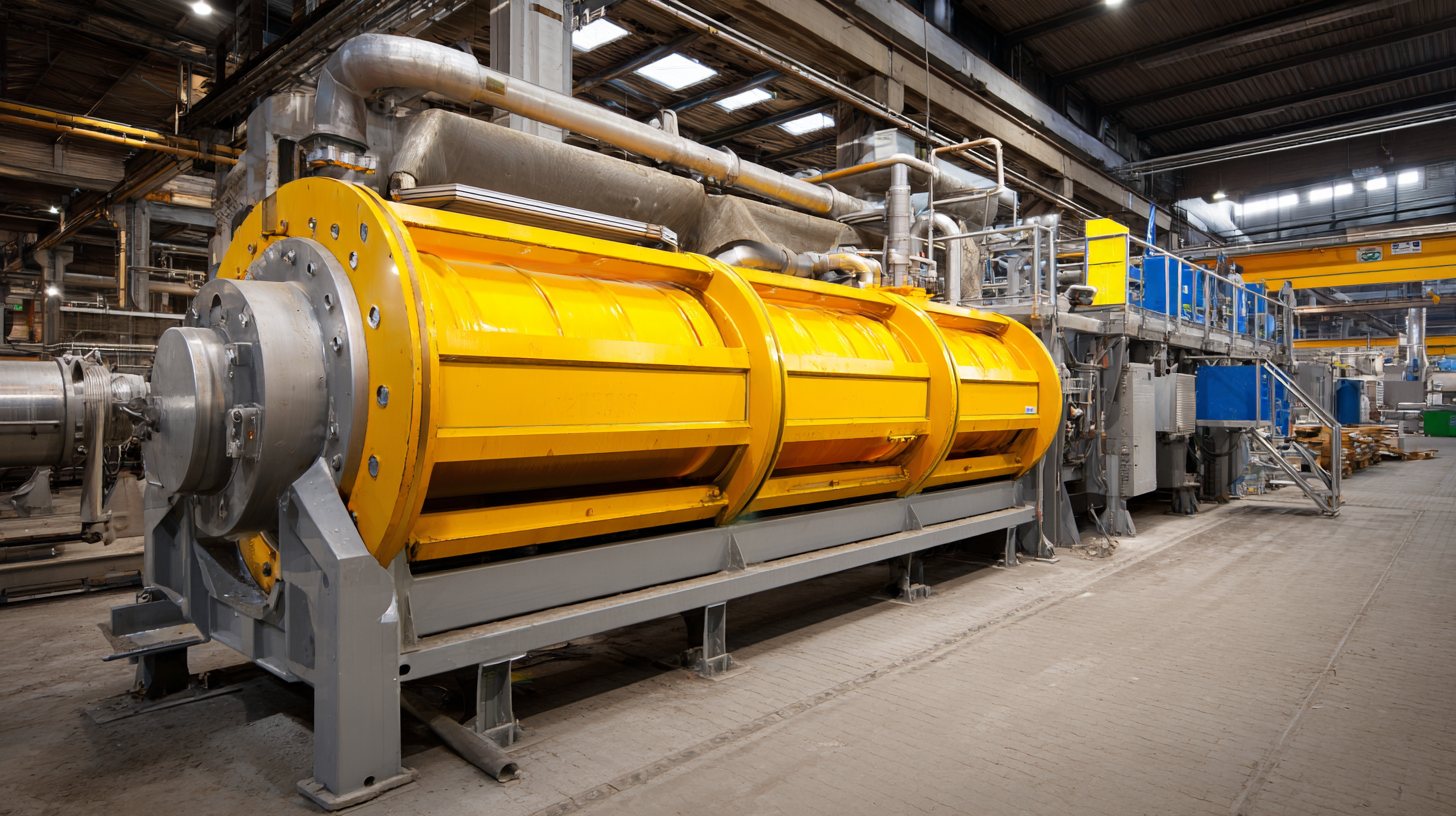
In the realm of industrial applications, the reliability of equipment is paramount, especially when it comes to minimizing maintenance needs. Continuous screw press systems stand out as a prime choice for industries aiming for efficiency and reduced downtime. These systems are engineered to operate seamlessly, with fewer moving parts compared to traditional machines. This design inherently leads to less wear and tear, resulting in decreased maintenance requirements over time.
Moreover, continuous screw presses are often equipped with advanced monitoring technologies that allow for real-time performance assessment. These features enable operators to detect potential issues before they escalate into significant problems, thereby further minimizing maintenance needs. The ability to maintain optimal operating conditions ensures longer equipment life and enhanced productivity. By investing in continuous screw press systems, industries not only benefit from increased reliability but also enjoy significant cost savings associated with maintenance and operational downtime.
